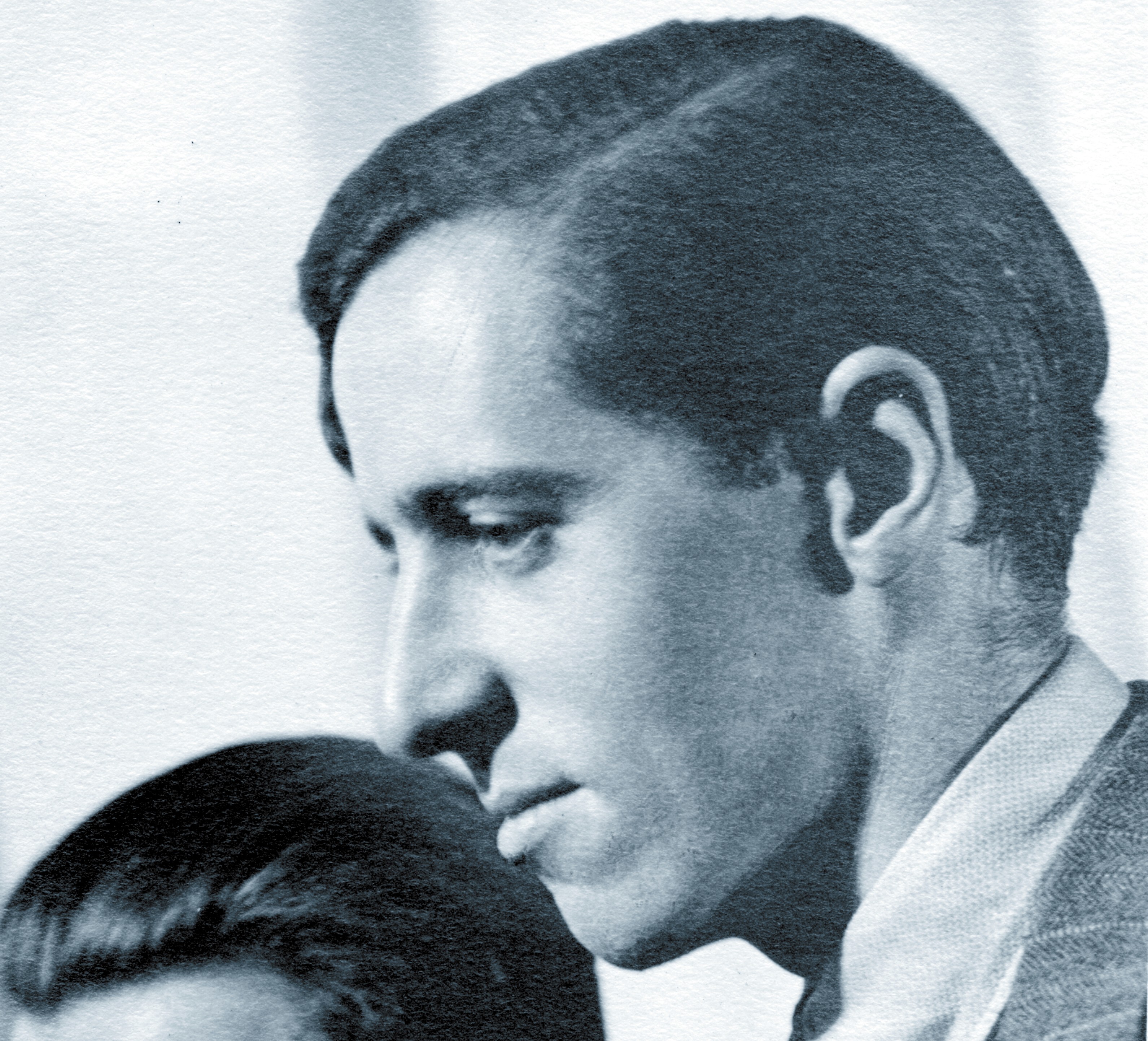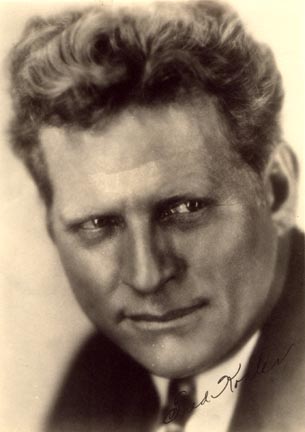Here is Gwendolyn Brooks's stunning short poem "The Last Quatrain of the Ballad of Emmett Till":
AFTER THE MURDER,
AFTER THE BURIAL
Emmett's mother is a pretty-faced thing;
the tint of pulled taffy.
She sits in a red room,
drinking black coffee.
She kisses her killed boy.
And she is sorry.
Chaos in windy grays
through a red prairie.
For Diana Fuss's class on the elegy, I've (we've) just been reading the final chapter in Jacqueline Goldsby's A Spectacular Secret: Lynching in American Life and Literature, in which Goldsby closes with a deft reading of how Brooks's lyric acts in relation to the "modernization of the black press" around the coverage of Till's murder case in 1955, with the attendant shift from a predominantly literary/journalistic regime of protest to a coverage that gained wider support through visual media. Goldsby writes, "If, for the romantics, the emergence of mass-produced print technologies threatened poetry's hegemony as the arbiter of critical judgment, in Brooks's day visual apparatuses like photography and television (and, particularly, the novel channels of the photo-essay and live broadcast) instituted a comparable change worth worrying about" (299).
"The Last Quatrain", then, aims "to scale [Till's mother, Mamie] Bradley's hypervisibility
as a photographic subject down to a less iconic, more human form," marking "a time zone where there are no cameras, no reporters, no rallies, no trials, no open caskets, no graves" (300-301). Toward the end of her argument, Goldsby writes of Brooks's thick, painterly abstraction: "The haunting force of Emmett Till's absence from a poem meant to memorialize his death leaves its trace on the text in another way as well, referring (as its 'colored' words do) to the history of modernism and the literary movement of imagism. Red, black and gray: William Carlos Williams's 'The Red Wheelbarrow,' Ezra Pound's 'In a Station of the Metro,' and Wallace Stevens's 'The Gray Room' come promptly to mind when reading 'Last Quatrain.' Why?" (305). Goldsby goes on to define the peculiar applicability of imagist practice for a poem on Till's murder, but I don't want to reproduce her entire argument, fine as it is.
I'm wondering about the cost of reading Brooks's poem as one that tropes post-imagist concision, and how this description of her form relates to the formal modernity (or not) of earlier poets like Claude McKay (hi S.P., I'm writing this almost exclusively as bait for your commentary btw). Goldsby's focus, among Brooks's body of work, is exclusively on this often anthologized poem, though she notes that she lacks the space to address the poem that proceeds it in 1960's The Bean Eaters, "A Bronzeville Mother Loiters in Mississippi. Meanwhile a Mississippi Mother Burns Bacon". [You can find the poem here, though in a version that screws up the lineation.] Goldsby admits that the two poems "ought to be analyzed together as the diptych they are meant to be" (note 33, pg 401); so I'd like tentatively to begin to do just that, as well as to speculate why, even in the service of Goldsby's stated goal of describing Brooks's relation to visual culture, the critical isolation of "Last Quatrain" poses some difficulties for her interpretation.
"A Bronzeville Mother Loiters in Mississippi. Meanwhile a Mississippi Mother Burns Bacon" is a longer and a messier poem, and that is partly its point -- beginning with that unwieldy title. As the title displays in miniature, the poem interrogates the possibilities of that "Meanwhile" (the simultaneity that allows us to imagine communication, specifically between mothers, across the crime) as well as what "Meanwhile" holds apart or in parallel (the simultaneity which is the basis for recognizing a common subjection within a larger system defined by the normalization of racial/sexual violence). "A Bronzeville Mother..." also describes the preparation of an inedible, abject meal (burnt bacon, "a sickness heaved within her", etc.) to which "Last Quatrain" is an ironic taffy-and-coffee dessert. "Last Quatrain"'s
digestif has, itself, been abjected from the longer narrative of "A Bronzeville Mother...", which ends with an imagination of impossible touch and eros, a cross-cut to the "decapitated" ballad, and perhaps a passing reference (in the word "Bigger", capitalized at the line's start) to Richard Wright's
Native Son:
But a hatred for him burst into glorious flower,
And its perfume enclasped them - big,
Bigger than all magnolias.
The last bleak news of the ballad.
The rest of the rugged music.
The last quatrain.
The 'plot' of "A Bronzeville Mother..." follows a woman who (given the poem's placement before the "Last Quatrain") we can presume to be Carolyn Bryant, the white woman who accused Emmett Till of his fatal breach of Southern 'decorum,' though neither she nor Till is named here. In Brooks's poem, this "Mississippi Mother" is consumed by the myths of chivalry which are thrust upon her, the "'maid mild'/of the ballad", and which she herself consumes but increasingly cannot swallow. The poem begins:
From the first it had been like a
Ballad. It had the beat inevitable. It had the blood.
A wildness cut up, and tied in little bunches,
Like the four-line stanzas of the ballads she had never quite
Understood - the ballads they had set her to, in school.
Right at the start, the ballad's form itself becomes a euphemism for the binding, torture, and murder of Till -- a form that simultaneously infantalizes the Mother who is here introduced as unable to 'learn her lesson'. In the heroic terms of the ballad, however, her "dark villian" is too young, too reminiscent of her own tussling children whom she is attempting to feed. "The fun was disturbed, then all but nullified" as her knight in shining armor - an agent of bloody infanticide - reveals himself, in acts of sexual aggression, as the true perpetrator of a terrifying leer (rather than the "sexual threat" supposedly posed by Till). The seven page poem testifies to the Mother's growing wordlessness in the face of her husbands "mouth, wet and red,/ So very, very, very red", a color that obviously seeps into "The Last Quatrain". Her husband morphs from Southern gentleman to male vampire, with a possible allusion in these small words "wet" and "red" to the corpse in Ivor Gurney's WWI elegy, "To His Love" ("hide that red, wet thing/ I must somehow forget"). There is also, of course, a pun on "read" that signals the "meddling headlines" that her husband abhors, and that proliferate the slashing visibility/audibility of his hateful, red perspective (metonymically his mouth) to a mass audience (even as the press, for one of the first times in American history, weighed in favor of the black victim). Nevertheless, while his wife is sickened by her husband and by the "courtroom coca-cola," she retains a trace of desire for such nectar, and while sad that the killing wasn't properly "fun" she thereby admits that it could/should have been (the fun was "
all but nullified").
What is most disturbing to me about Brooks's "Last Quatrain" is that the signs of "fun" and sweetness have been amplified rather than muted or thrown up. I think this actually furthers Goldsby's reading of the poem, but it does require us to question, in particular, the intimacy of address that she reads too quickly as the site of the poem's enunciation. "Privy to the primacy of this act [of kissing her killed boy], the speaker claims the right to address Bradley using terms of endearment and the diminutive," writes Goldsby, "The colloquialisms indicate the intensity of their bond, which the content and form of the poem allow. Precisely because they are precious turns of phrase, the references counter the perception that figured Bradley to be knowable only as a picture, an image-object detachable from herself" (301-2). Here the "speaker" is tacitly assumed to be Brooks, or at least an empathetic subject whose proximity poses no threat. I would note, however, the ambiguity of the "intensity" that Goldsby rightly points out.
As I've used the term "abjection" a few times now, it may be clear that I'm taking it straight from Kristeva's
Powers of Horror, which begins by establishing the concept in a scene of "loathing an item of food." Nevertheless, disgust is proven to be founded on a subject-violating libidinal "want" and, according to Kristeva, "
jouissance alone causes the abject to exist as such." While "Bronzeville Mother" saturates us in nauseous scenes of food rotting, being misprepared, or being thrown around (one white child's face is smeared brown with molasses) (all of which, btw, might recall Langston Hughes's pivotal articulation of race memory in terms of food abjection: the "raisin in the sun"), the "Last Quatrain" is candy-coated and, precisely in its imagist bite-sized-ness, eminently edible. Edible, that is, not just by us as readers, but by us as imaginary readers who have been prefigured by the "Mississippi Mother." To say that Emmett's mother is "sorry" is both to allow a space for her unvarnished, moving statement of private grief (Goldsby's point); and yet -- in a disturbing possibility unavailable without the context of what has come before it -- "sorry" also cannot help but connote an apology for the white woman's self-indictment upon seeing, in the courtroom of a prior verse, the "Decapitated exclamation points in that Other Woman's eyes." As such, one could argue that, far from "counter[ing] the perception that figured Bradley to be knowable only as a picture, an image-object detachable from herself", Brooks heightens and even theorizes Mother Till's powerlessness.
Here I find it useful to turn to an article by Sianne Ngai, published in 2005 in
Critical Inquiry, entitled "The Cuteness of the Avant Garde." Briefly: Ngai's current project is to examine "comparatively novel" aesthetic categories (in relation to old chestnuts like "the sublime" or "the beautiful") including "
cute,
glamorous,
whimisical,
luscious,
cozy, or
wacky" which, by dint of "the close link between their emergence and the rise of consumer aesthetics...seem all the more suited for the analysis of art's increasingly complex relation to market society in the twentieth century" (that is, a market society that has multiplied and specialized its vocabulary of taste in order to facilitate the "industrialization of modernist aesthetics") (812). As Ngai traces its definitions and uses, "cuteness" comes to describe "the aestheticization of the small, vulnerable, and helpless" which almost inevitably "find[s] its prominence checked in the culture industry of a nation so invested in images of its own bigness, virility, health, and strength" (819) and which is particularly courted by (and a potential source of embarrassment for) the imagist/objectivist /small-concrete-everyday-things tradition of the 20th century avant-garde.
With cuteness's characteristic exaggeration of features (e.g. huge eyes), its anthropomorphization of the commodity, its suggestion of softness, maleability, and smallness, "'cuteness' names an aesthetic encounter with an exaggerated difference in power that," however, "does something to ordinary or communicative speech" (think of how the baby elicits baby-talk from adults) (Ngai 828). This strikes me as useful in discussing Brooks's short poem, because it allows it to be diminished without depriving it of a capacity for retaliating against the discursive impositions of the long, preceding poem about a white mother. Goldsby needs for "pretty-faced" to equal intimate affection and Jahan Ramazani, in
Poetry of Mourning, bizarrely describes "pretty-faced" as "colloquial black speech" (172), i.e. as a marker of authenticity. But there is no getting around the condescension of these words; and indeed there is no need to get around it or to cover-over the power imbalance that Brooks stages in introducing the grieving mother in such a way. As Ngai writes of Gertrude Stein's
Tender Buttons, "her interest is in how artworks might be driven by positive affects without necessarily becoming
affirmative" (829, her italics). [See note 51 in Goldsby for a query on the relationship between Stein's aesthetics and Brooks's.] "The Last Quatrain" is not meant, or is not
able given the historical circumstances, to be a nuanced or intimate portrait of Till, who is rather hyper-simplified and abstracted as we are given "just
enough face to enable [her] to return our gaze" (Ngai 833, her italics).
The Mississippi Mother in the earlier poem describes Emmett's "mouth too young to have lost every reminder of its infant softness." In "Last Quatrain" that softness returns with a vengeance.
In the actual scene of the awful crime against Emmett Till - which Goldsby reminds us can never be seen, can only form an aporia in the archive - we must recall that there were men who ignored his youth - men who did not allow his "infant softness" to take affective hold. Or, on the other hand, as Ngai implies, since infantilization is itself the "always already" of a racist perspective, it may be that these men were able to see nothing
but youth and feel nothing
but its affective disordering of their "power." "A Brownsville Mother..." asks, as a extreme limit case, what it would mean for Carolyn Bryant to come to identify with either Till's mother or, more uncomfortably, the murdered boy himself (or even with the institution of slavery in total). She imagines "The fear/ tying her as with iron." "Last Quatrain" asks the same question, but it does so by allowing
us to identify with her, or to dis-identify, rather than by narrating the subjectivizing vicissitudes of that identification. To call out a pun as blunt as the primary colors on Brooks's palette: the room and the prairie are "read" by us, and thus potentially (made) "red" by us as well. Adam Gussow, in
Seems Like Murder Here: Southern Violence and the Blues Tradition, describes the central paradox of an intraracial encounter with the lynched body: "Lynching haunts black southern blues subjects because they are helpless not to identify with the charred, mutilated horror-producing black body it generates, and yet they are unmade as subjects - because claimed by the abject - the moment they feel such identification" (130). In parallel with this formulation, I wonder if we might say that a poem such as Brooks's "The Last Quatrain of the Ballad of Emmett Till" requires an expression of cuteness, tweeness, etc. in order to critique the "grown-up" blindness at the foundation of the crime, while also recognizing that to inhabit this cuteness is to abandon, to some degree, the very agency necessary to undermine the power imbalances implicit in that perspective.
-----------------------------
Goldsby argues convincingly that lynching constitutes a signal feature of American modernity, and that to call lynching "modern" forces us, as Paul Gilroy notes, to look "more deeply into the relationship of racial terror and subordination to the inner character of modernity" (qtd by Goldsby, 286). At heart, I think I'm asking questions of form here, and how this might help to clarify a question Evan posed way back in the thick of generals about the seemingly un-modern style of Claude McKay's sonnets. I know I'm being most opaque about the connection between this poem and, for instance, McKay's sonnet "The Lynching." But, anyway, maybe I've gone on for long enough.

 A question that any reasonably obsessed music fan has presumably asked themselves about their own personal store of knowledge: "What do you do with all that crap?" (It's a particularly thorny question when your livelihood will depend, as ours will, on absorbing and doing something with a large load of other, marginally more culturally respectable crap.) Yet lately I get a strong sense that pop trivia is moving definitively away from silly life-encumbrance (as in Nick Hornby's High Fidelity) to a genuinely valuable, completely legitimate form of highbrow cultural capital. That is, knowledge of pop music, past and present (but especially past), works for people today the way knowledge of art, literature and politics customarily has: as a means of distinction and generator of standards and values. Which means it can also, not incidentally, make material for (other) art. I have two particular recent examples in mind: Todd Haynes' movie I'm Not There and Tom Stoppard's play Rock 'n' Roll.
A question that any reasonably obsessed music fan has presumably asked themselves about their own personal store of knowledge: "What do you do with all that crap?" (It's a particularly thorny question when your livelihood will depend, as ours will, on absorbing and doing something with a large load of other, marginally more culturally respectable crap.) Yet lately I get a strong sense that pop trivia is moving definitively away from silly life-encumbrance (as in Nick Hornby's High Fidelity) to a genuinely valuable, completely legitimate form of highbrow cultural capital. That is, knowledge of pop music, past and present (but especially past), works for people today the way knowledge of art, literature and politics customarily has: as a means of distinction and generator of standards and values. Which means it can also, not incidentally, make material for (other) art. I have two particular recent examples in mind: Todd Haynes' movie I'm Not There and Tom Stoppard's play Rock 'n' Roll.




















